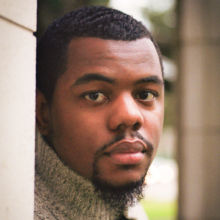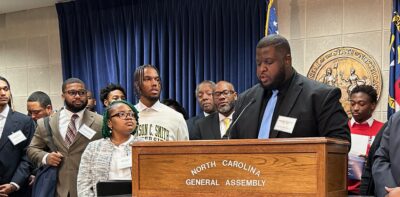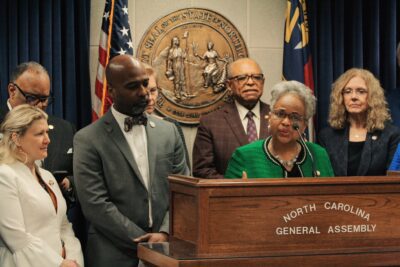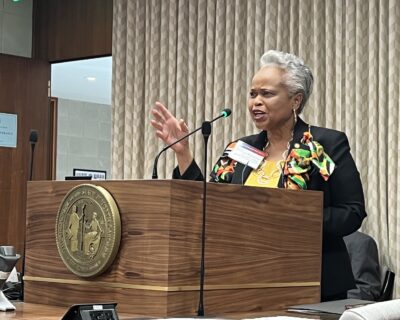|
|
In some homes, when the alarm clock sounds off at 6:30 a.m., it triggers another device that can cause the curtains to open automatically, allowing the sun’s rays to stretch inside of the room. Simultaneously, the hum of a machine may be heard, preparing to fill the morning’s first cup of coffee. Bulbs in other areas of the home may illuminate as well, while the air conditioner settings adjust.
Each of these actions can occur without an individual ever placing a foot on the floor. And because it all comes from an application on a phone, the user can delay the entire process if they want to snooze for just 30 minutes longer.
The depiction above is a mere example of the power of the “internet of things” (IoT). The phrase refers to physical equipment and sensors that are connected to the internet, communicating data that aids in simplifying and automating operations.
Whether it’s homes, phones, televisions, or even vehicles, today’s world is surrounded by “smart devices” that have rapidly become integral parts of day-to-day life. “Smart cities” are no different when it comes to utilizing IoT on a larger scale to address challenges and enhance daily living.
This past March, students from North Carolina’s historically Black colleges and universities (HBCUs) competed in the HBCU Smart Cities Challenge. The teams competed by exploring how to use IoT to address problems presented by four cities in the state.
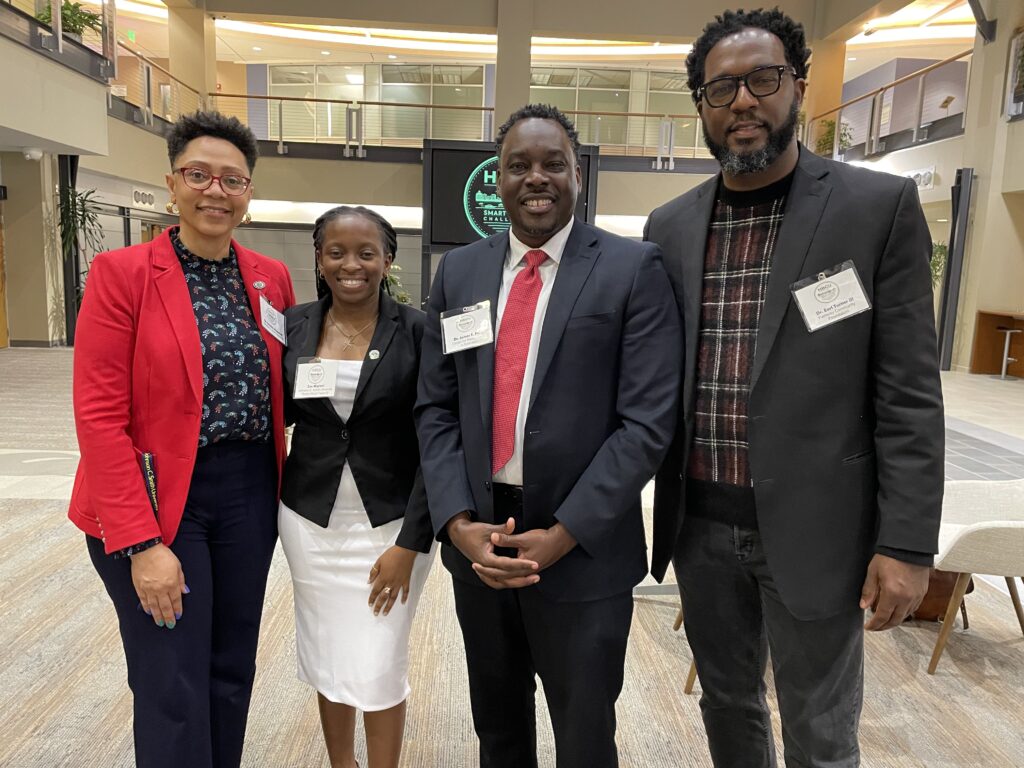
Here is how they compiled their genius to create real world solutions.
About Pathway Community Foundation
Pathway Community Foundation (PCF) is an organization that is focused on innovative community empowerment. According to their mission statement, they aim to “unite aspiring students, dedicated educators, and forward-thinking city officials in shaping the cities of tomorrow.”
The HBCU Smart Cities Challenge is one way in which the foundation is establishing a network of individuals and institutions to create change in Winston-Salem, Rocky Mount, Charlotte, and Morrisville.
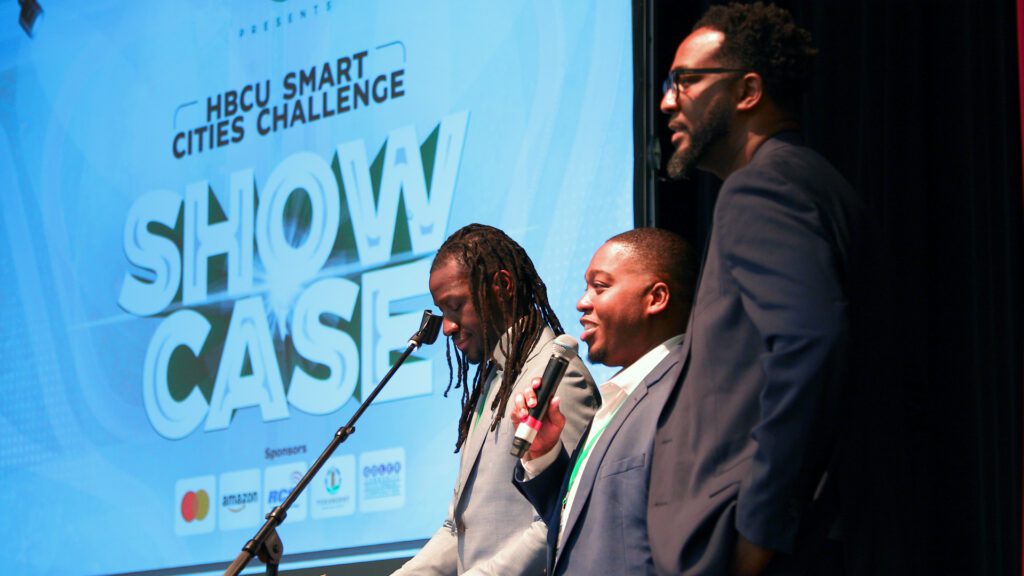
PCF Co-Founder, Dr. Earl Turner III, also serves as both the Board chairman, and director of research and evaluation for the organization. He expressed that “anybody who supported this initiative is displaying an immense amount of courage.”
This is based on the belief that the foundation of the challenge is to push everyone involved to go towards problems rather than seeing a problem and going the other way. According to Turner, that takes courage, “especially if you have not necessarily had that type of encouragement that says, see problems as opportunities.”
Identified as opportunity zones for the challenge, each city developed “problem statements” for at least one of the following focus areas: climate change, public transportation, waste management, water management, and public safety.
From there, over 30 students from eight HBCUs in North Carolina joined forces to address one of the problem statements for each of the cities. In the spirit of cultivating community and networks across campuses, the foundation implemented “borderless teams,” enabling partnerships based on interest as opposed to limiting grouping by their university affiliations.
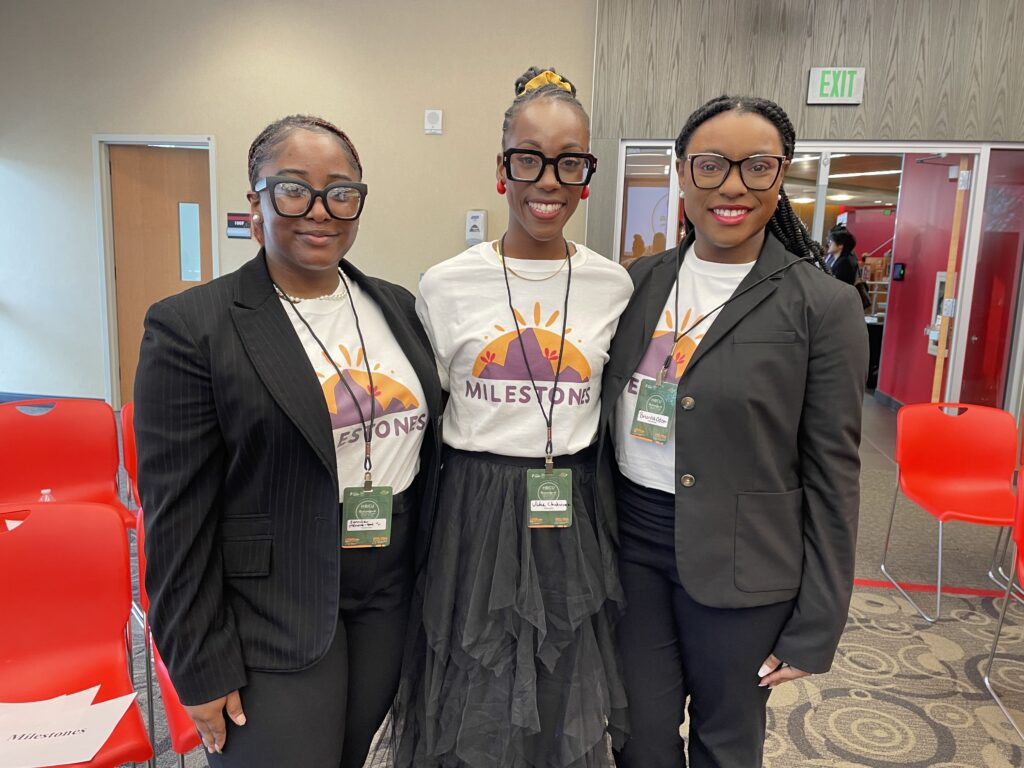
HBCU Smart Cities Challenge pitch competition
For five months, students engaged in weekly meetings and other workshops, learning about IoT, analyzing data for their respective problem statements, and using their combined knowledge to develop potential solutions. Additionally, participants had the opportunity to engage in site visits, which allowed them to gain up-close exposure to the areas for improvement and insight from respective city government officials and community leaders.
Dawn Boudwin is the director of Mastercard’s In Solidarity initiative at the Center for Inclusive Growth. Boudwin said the challenge is one that they love, given that it ties into Mastercard’s focus on efficiency and inclusiveness in smart city development, as well as support for HBCUs.
Mastercard offered curriculum and training for students regarding the used of data to solve city problems. Additionally, they served as co-host and sponsor for the HBCU Smart Cities Pitch Competition.
“These are the solutions of our problems today, but also tomorrow. These are the folks that are both thinking about them and building the solutions for them,” Boudwin stated.
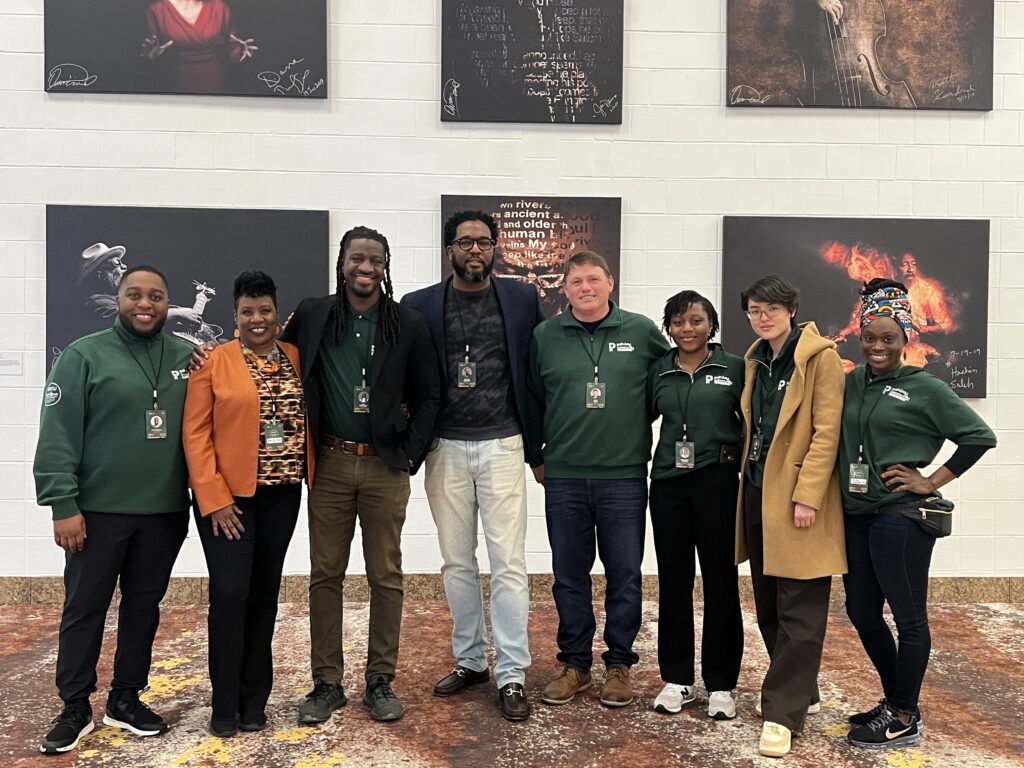
Terry Yates is a smart cities and IoT coach and consultant with significant experience supporting nonprofits and governments with increasing efficiency through technology.
“They have different technology, they know different things that could potentially help,” he said, referencing his experience working with the HBCU Smart Cities fellows. “Just watching them think about the process and then give ideas and solutions, solutions I would’ve never thought of, I think that’s really important when you think about their growth and the place they are going to go in their careers.”
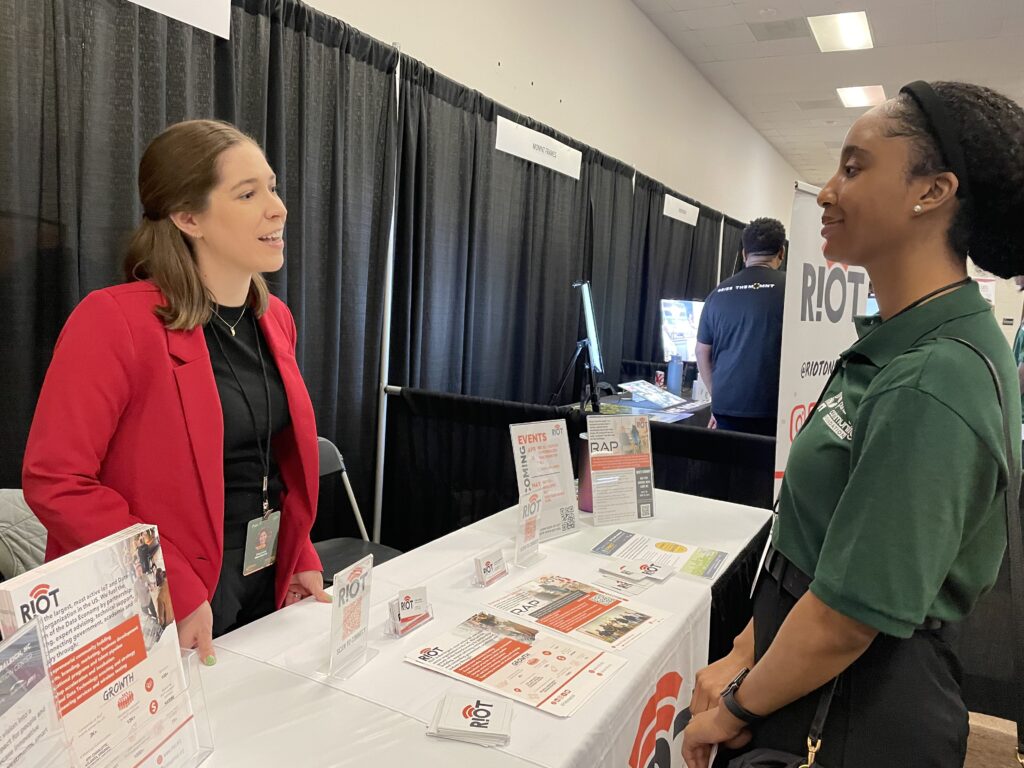
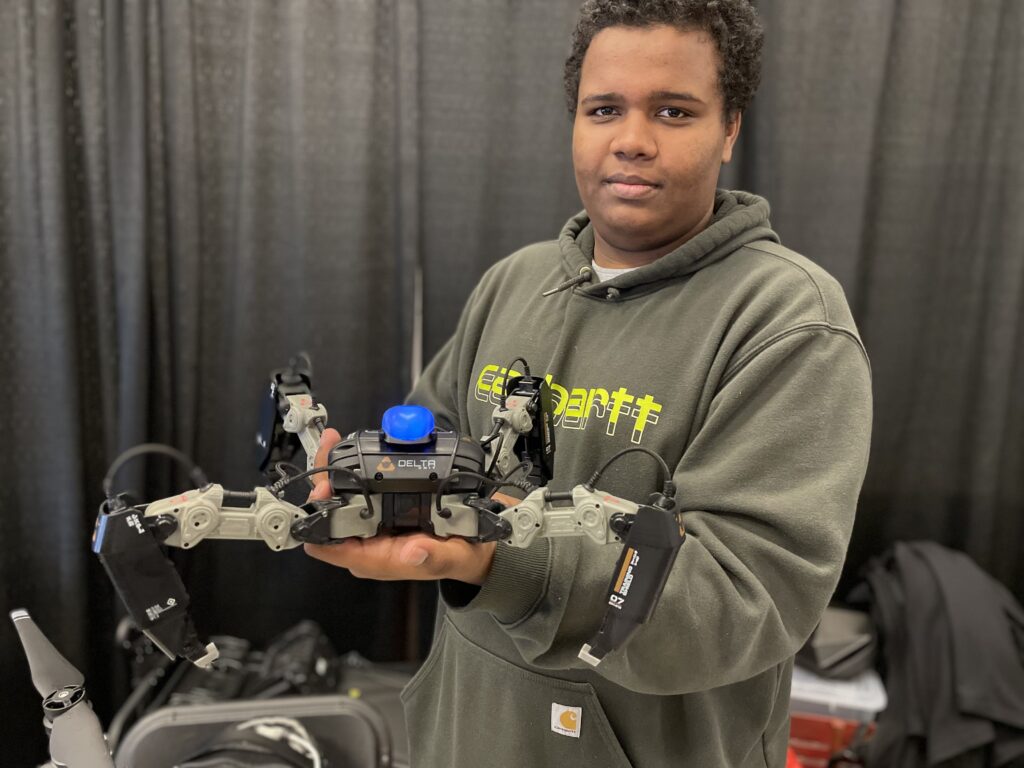
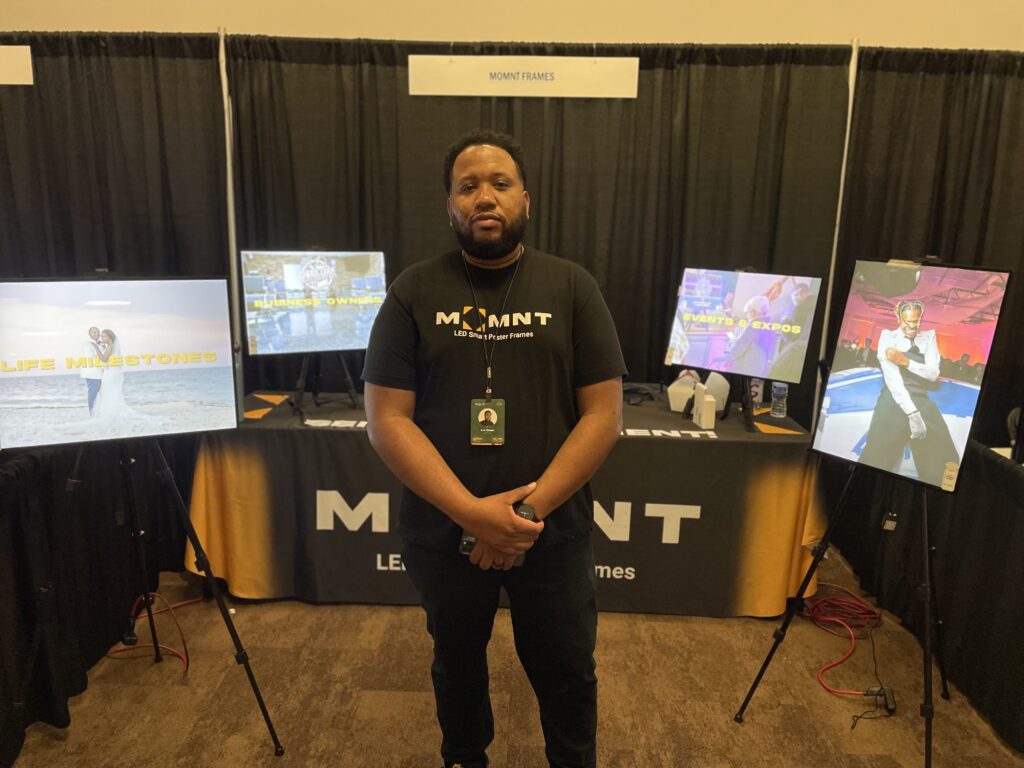
The learning experiences culminated in a three-day event hosted in partnership with the City of Winston-Salem and Winston-Salem State University (WSSU). Day one consisted of an evening reception that connected students with local community leaders, in addition to a panel discussion about the power of experiential education at HBCUs.
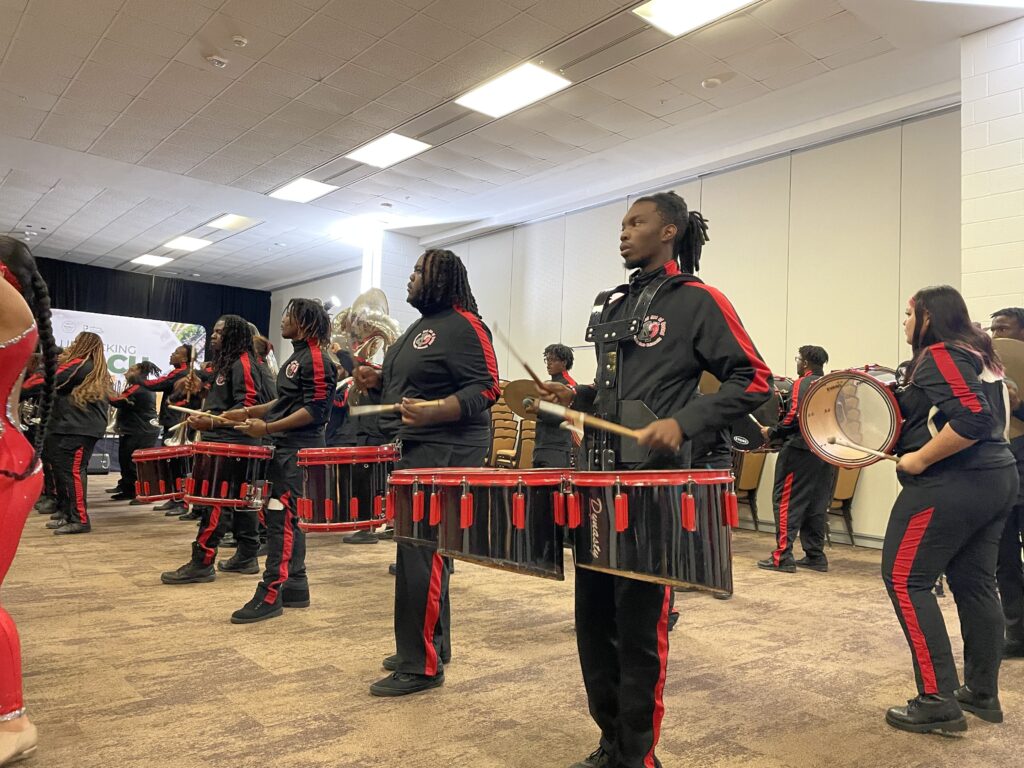
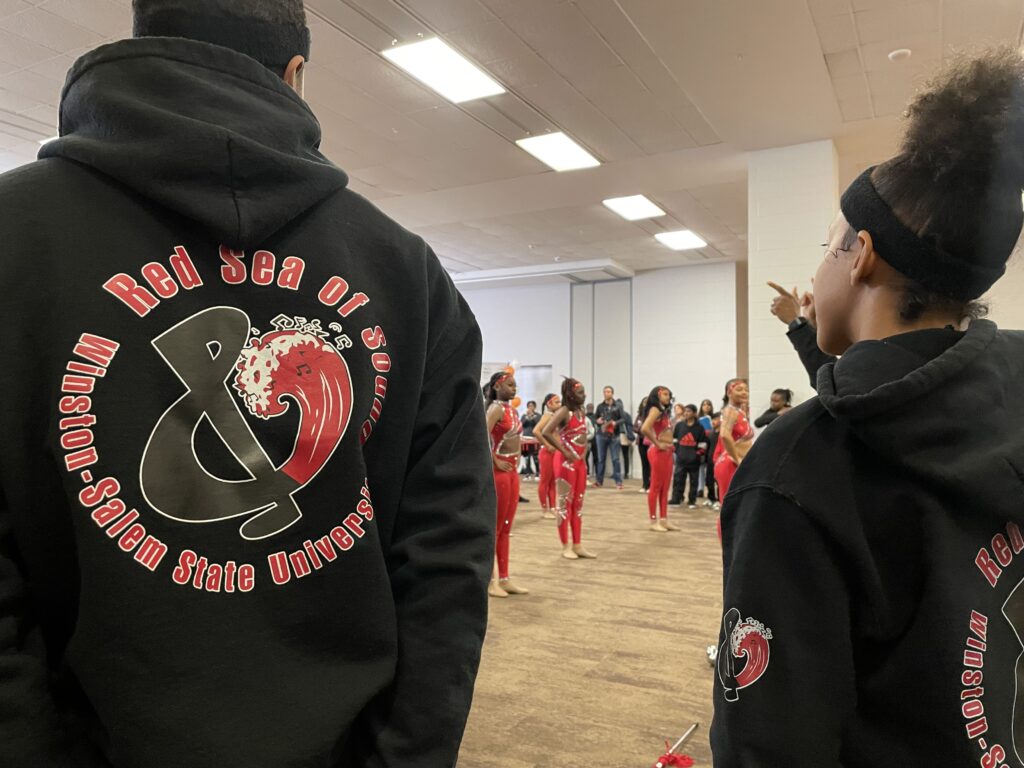
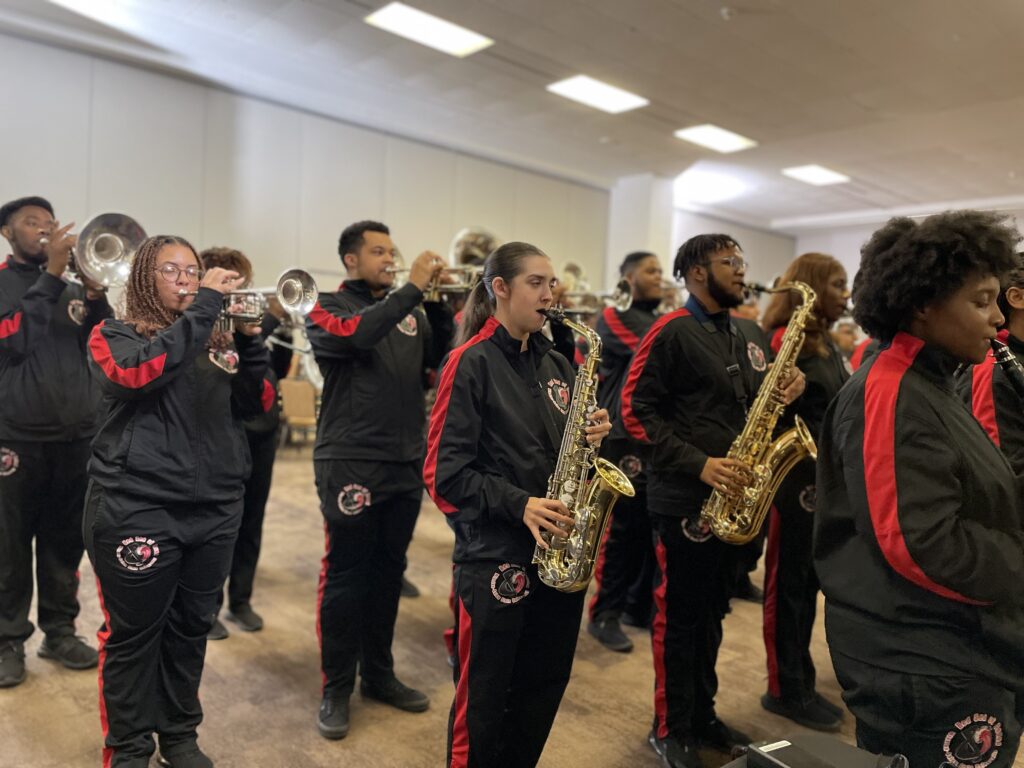
The following morning, over 100 Forsyth County students joined the event for the Community Tech Day. Entrepreneurs, colleges, and other organizations across the spectrum of technology spoke with students about the myriad of pathways available in the industry.
The career fair-style event was coupled with a captivating tech demonstration featuring tricks from a robotic dog, spider, and other drones.
Lastly, the day quite literally ended on a bang as the students departed the venue to the rhythm of the “Red Sea of Sound,” WSSU’s electrifying marching band.
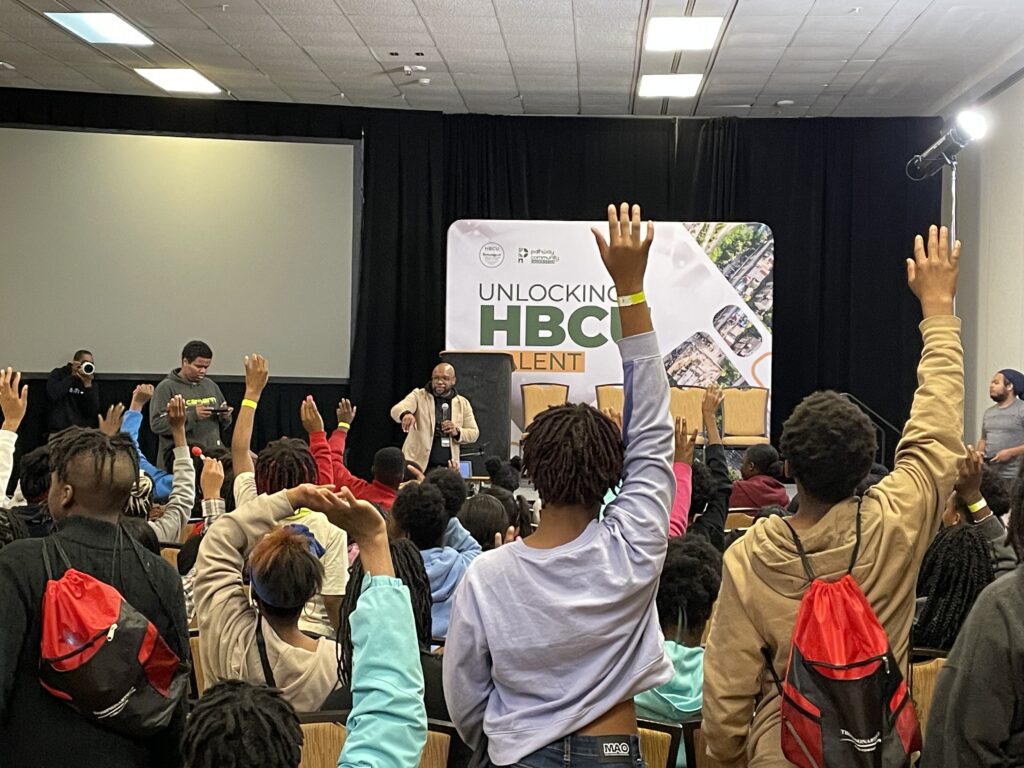
The Smart Cities Challenge concluded with the second annual pitch competition. The seven teams took the stage, each allotted 10 minutes to present their solutions to the panel of judges for a chance at winning one of three Mastercard-sponsored prizes totaling $10,000.
The pitches ranged from suggestions of city-wide smart kiosks to other real-time transportation data systems. Another proposal included a framework for a reward-based mentoring application called Milestones, aimed at uplifting minority male youth.
The first place team members consisted of Zoe Migioni from Johnson C. Smith University, Karly Heavens Gerome from St. Augustine University, and De’Vonte Frazier and Evan Jones of Elizabeth City State University.
Their winning presentation, “The Big Switch,” focused on implementing an advanced metering infrastructure (AMI) solution for Rocky Mount’s water system that would provide “real-time data collection and analysis capabilities, enabling the city to monitor water usage more efficiently and reduce water loss.”
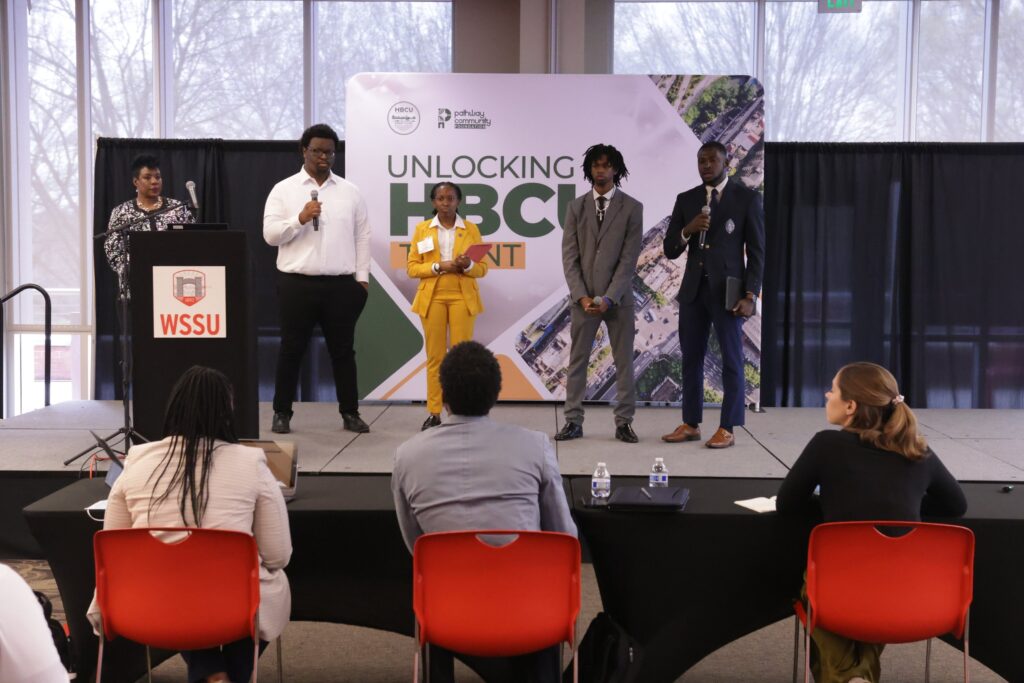
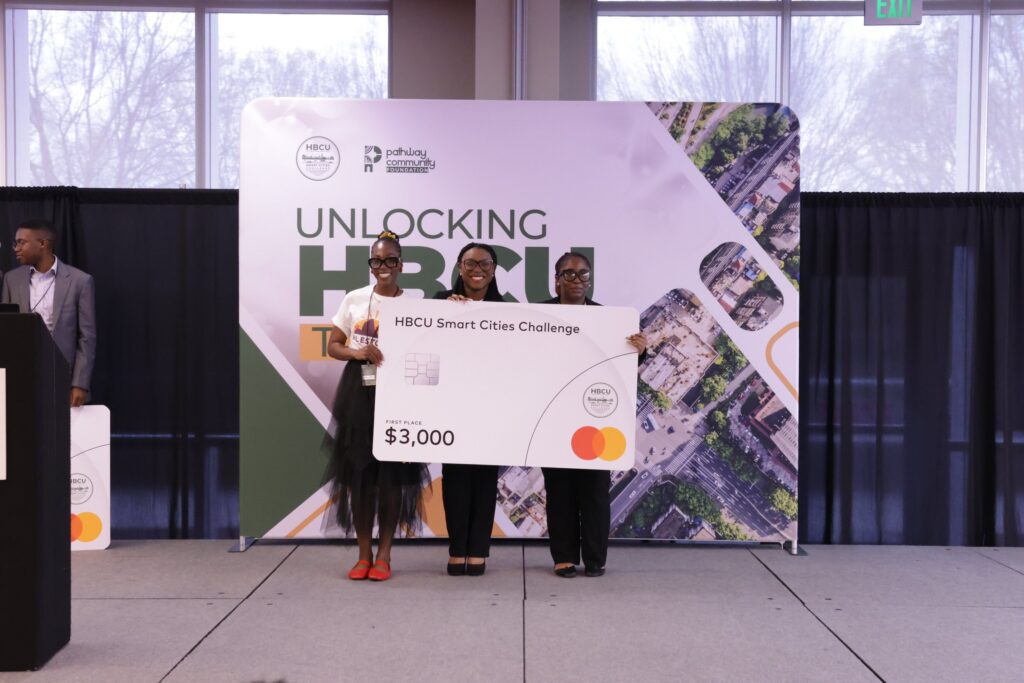
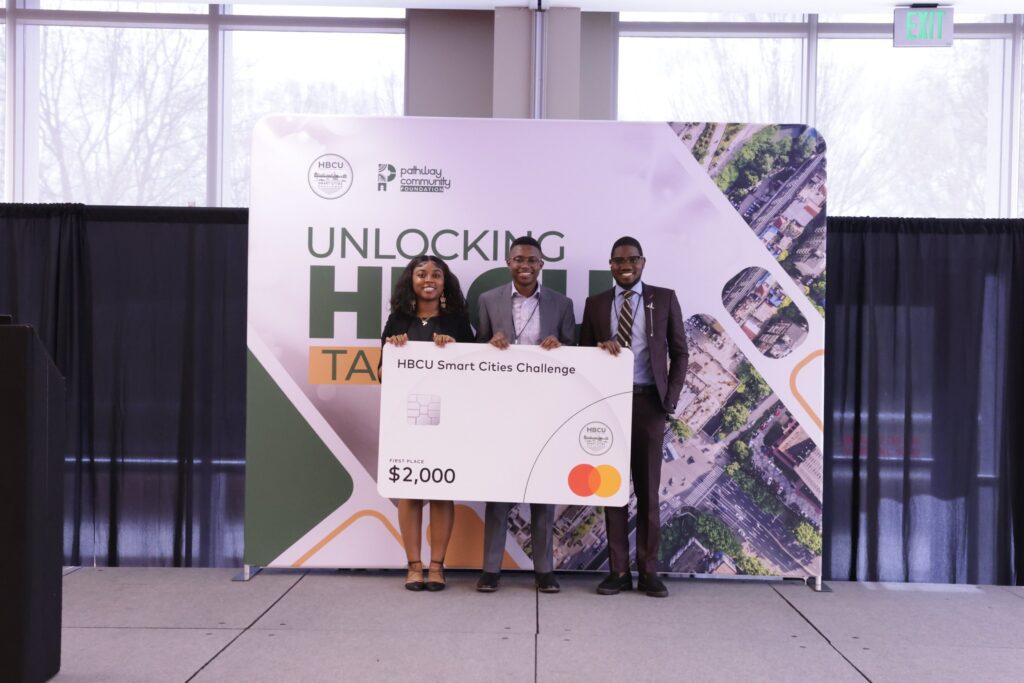
Bringing student concepts to fruition
The goal, according to PCF co-founder and director of innovation Kevin Fomengia, is simple: “Five years from now, when people think of smart cities, they are going to think of HBCUs.”
“We want to change the narrative of technology and HBCUs, and really integrate those into the same sentence,” he added.
At the conclusion of the event, several representatives from the partnered cities spoke with students about the potential to implement their recommendations. PCF’s co-founder and director of partnerships, Ayinde Simon, emphasized the aspiration of materializing the student’s concepts. Their relationship with R!oT NC, an organization experienced in accelerators for start-up businesses, is one that the foundation hopes to leverage in the endeavor for the near future.
Overall, for Simon, a clear highlight for the challenge is that they centered the HBCU students as problem solvers. “I think they can take what they learned in this program going forward and utilize it in anything they do. That’s really the bigger impact I think we have and we’re excited to expand that impact going into next year,” he said.
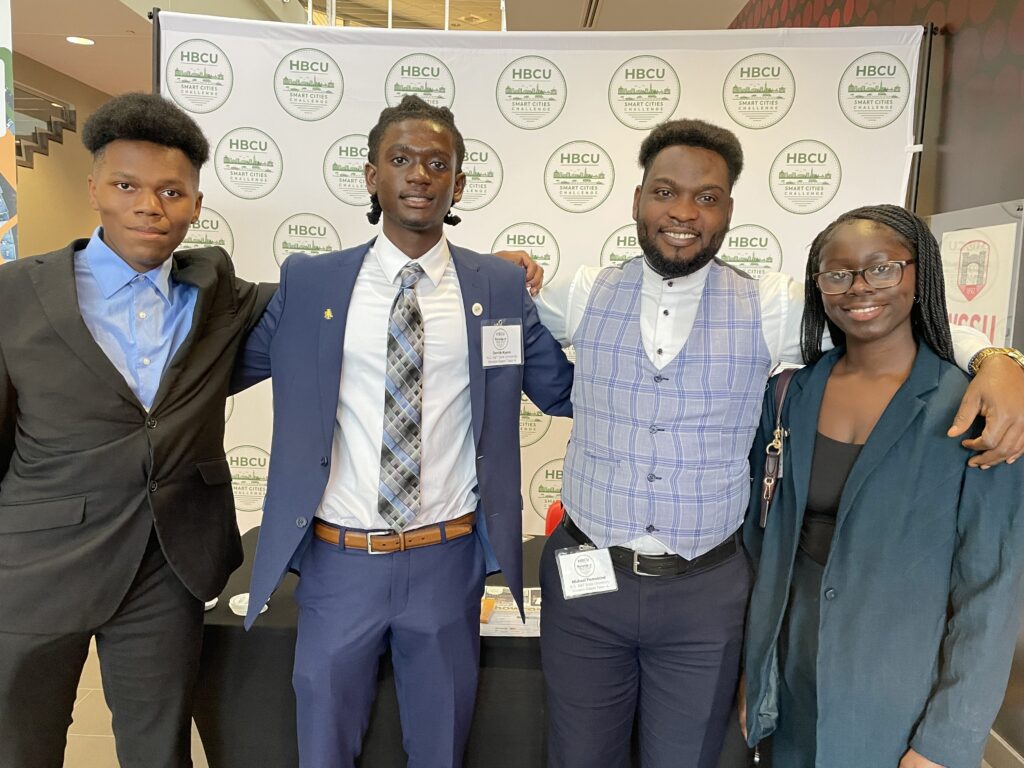
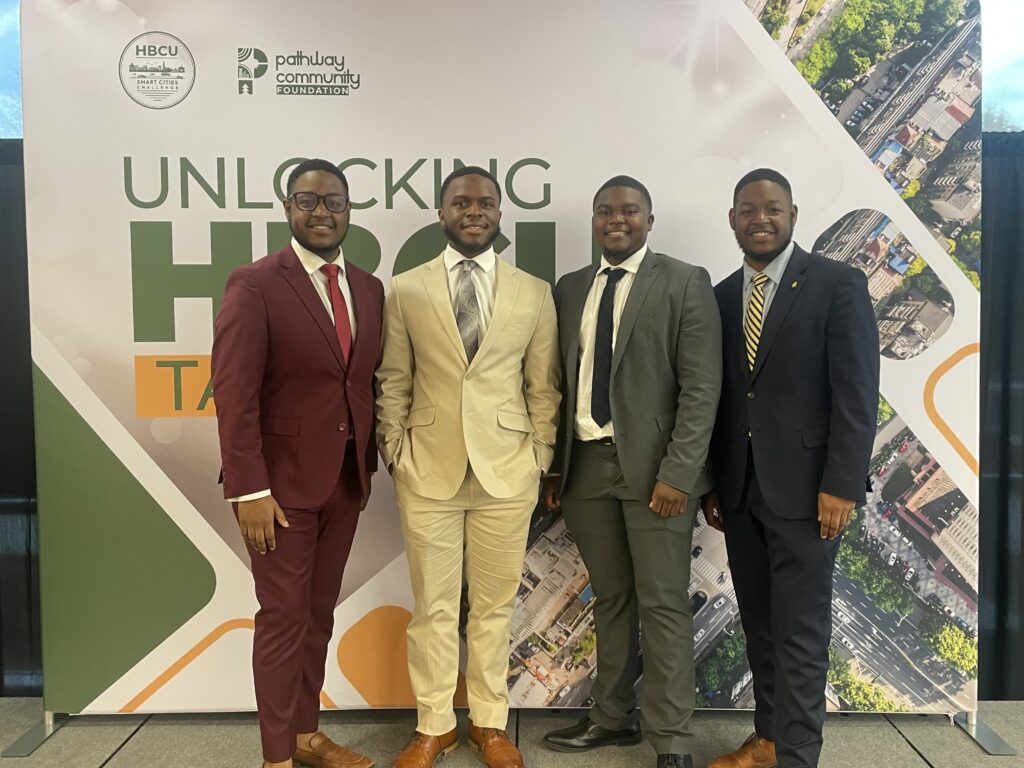
“I think this particular challenge is important because it brings awareness to some of the minute problems that we may not think about that are actually day-to-day problems that we face as citizens in this country. This challenge brings those to light and also allows students to actively use their brains to think about solutions that could help their parents, that could their grandparents, that could help other students from their cities that they are working in.”
Zoe Migioni, first year student at Johnson C. Smith University
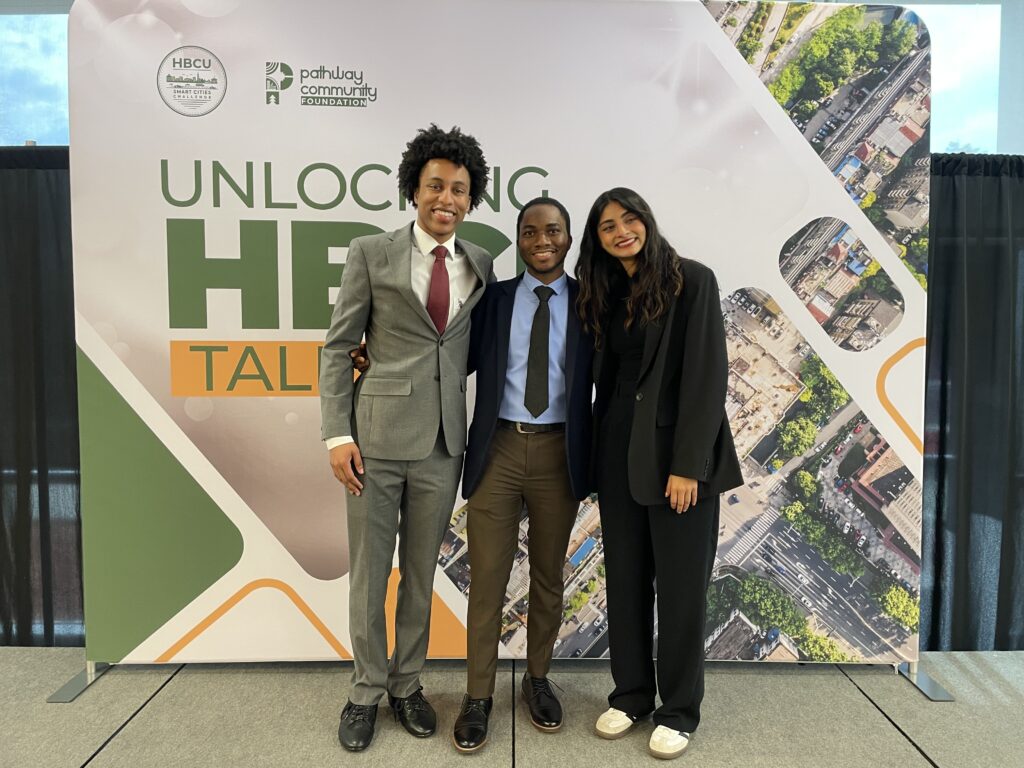
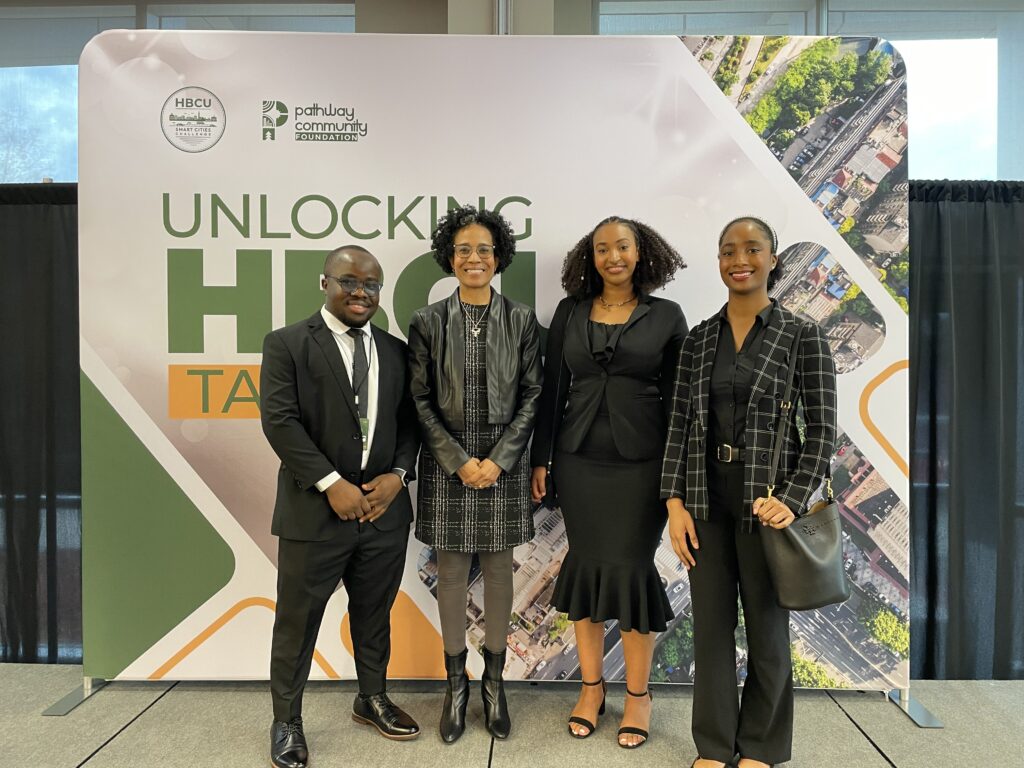
Behind the Story
In keeping with EdNC’s commitment to DEI, Derick Lee worked with Mebane Rash on edits after this article was published so that the article better reflects organizational leadership.
